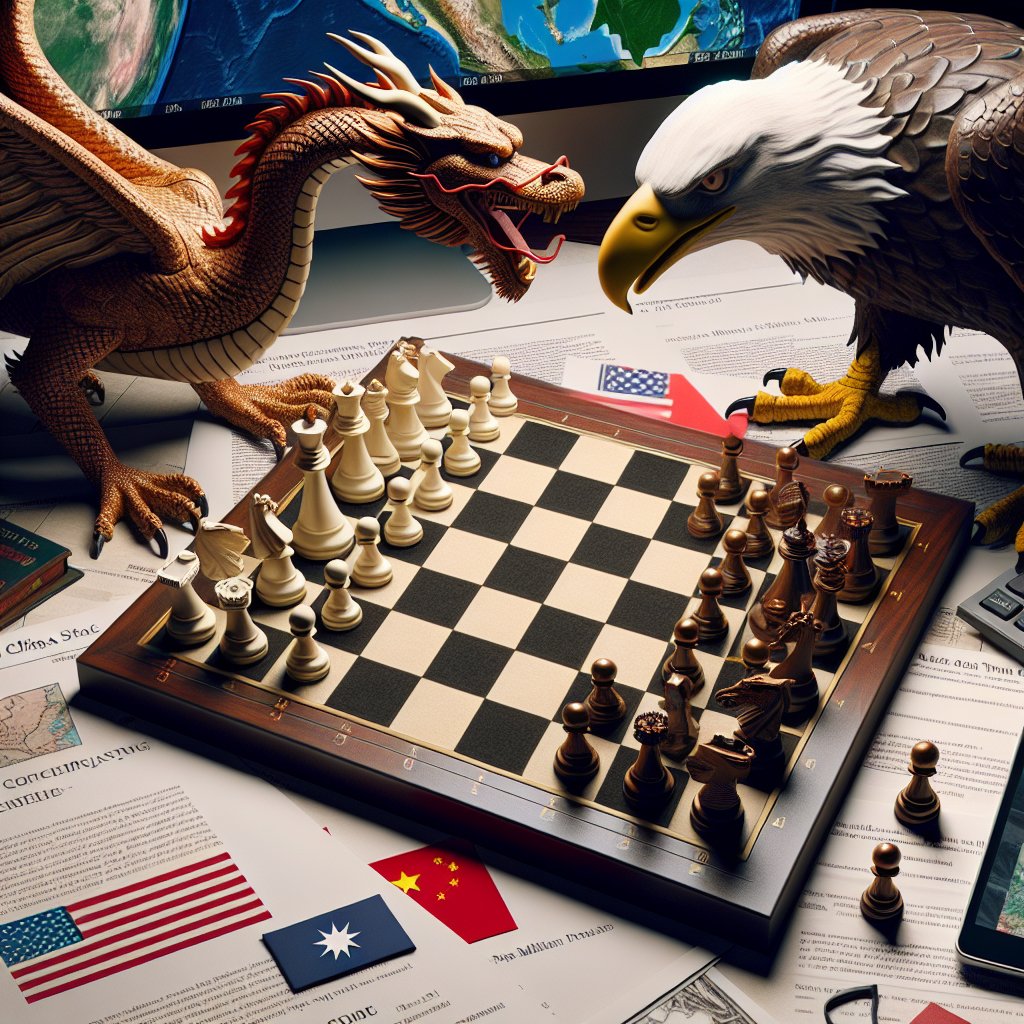Content created by AI
China Criticizes US Post-Talks, Insists on 'Cold War' Mentality and Military Meddling
In an evident display of diplomatic muscle-flexing, China's Defense Ministry voiced sharp criticism towards the United States this Thursday. This rebuke comes shortly after the first high-level military discussions between the two superpowers in over a year—a gathering that was initially believed to signal a thawing in Sino-American military relations.
Last week's videoconference between top US General Charles Brown and his Chinese counterpart, General Liu Zhenli, which came on the heels of a significant agreement to renew military ties, was met with optimism. The pledge made in San Francisco by leaders of both nations to restore communication channels, shattered in the wake of Nancy Pelosi's controversial visit to Taiwan, had set the stage for a hopeful reconciliation.
General Wu Qian, a Chinese defense ministry spokesperson, however, struck a belligerent note in his statements at the last scheduled press conference of the year. He lambasted the US for its bolstered military presence in the Asia-Pacific, accusing America of perpetuating a "Cold War" mentality that only serves to fan the flames of confrontation.
Despite positive overtures from last week's talks deemed by Wu as "positive and constructive outcomes," he called for the US to show tangible actions rooted in equality and respect to foster a healthy and stable progression in military-to-military relations between China and the US.
Tensions escalated as Wu directed a warning at the US concerning its involvement in Taiwan. With the island preparing for an essential presidential election on January 13, the Chinese official criticized the Taiwanese government for exaggerating military threats from the mainland for perceived electoral benefits. Wu categorically condemned any form of official and military engagement with Taiwan and urged an immediate cessation of arms supplies from the US.
The ongoing disputes in the South China Sea were also addressed, with Wu attributing the increasing strife, highlighted by recent encounters between China and the Philippines around the Spratly Islands, squarely to the US. He accused the US of covertly spurring on the Philippines in a bid to disrupt regional stability—an accusation that has seen denial from a Philippine military spokesperson this week.
Amidst these international affairs, China's domestic military purges have also come to the forefront. Wu sidestepped inquiries regarding the recent unseating of three top executives from key aerospace defense firms from China's elite political advisory body, directing questions to "the competent national authorities."
The implicated executives are suspected to be part of a larger anti-corruption sweep within the People's Liberation Army, which also involved former defense minister Li Shangfu who is under investigation for corrupt military procurement. Further shakeups within the PLA Rocket Force were noted as its senior leaders were abruptly replaced in July, hinting at internal restructuring or potential disciplinary actions.
These developments post-military talks reflect the complex and often contorted narrative between China and the US. While avenues of dialogue seemed to open, the response from China indicates that a fundamental trust deficit and ideological discord remain. Both powers are navigating a delicate dance of diplomacy, where each step could potentially affect not just bilateral relations but the broader geopolitical stability of the Asia-Pacific region.










